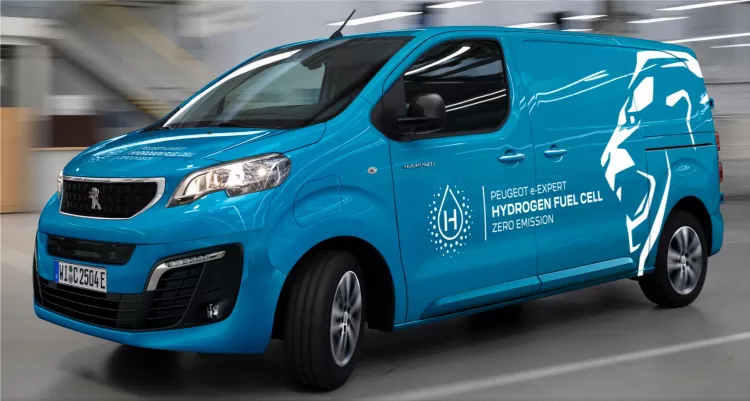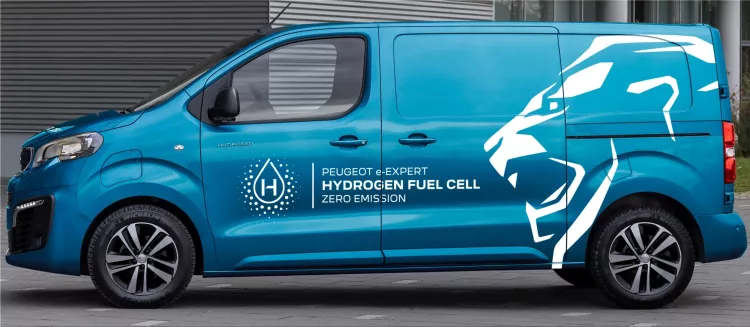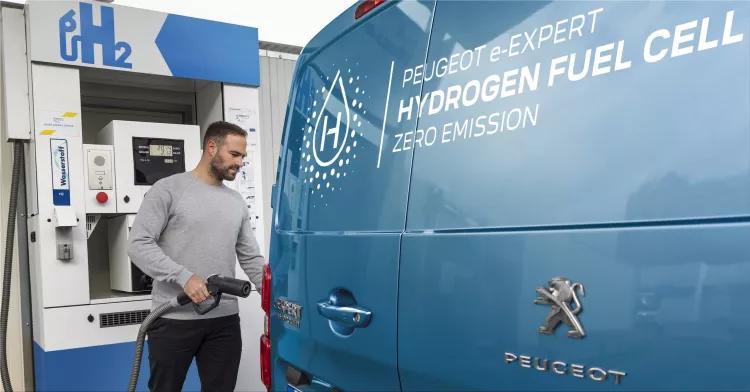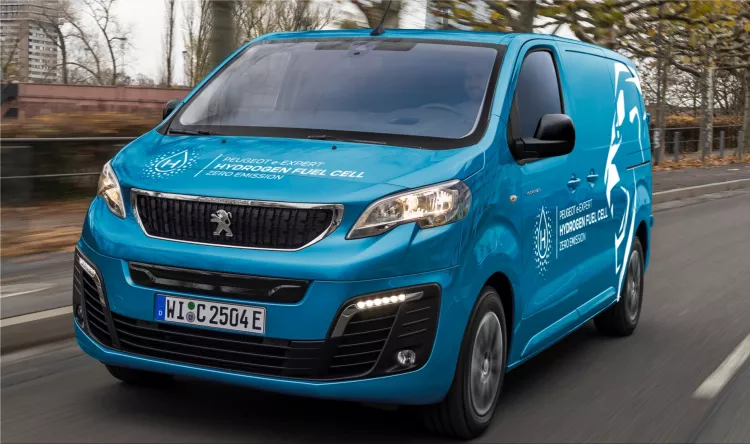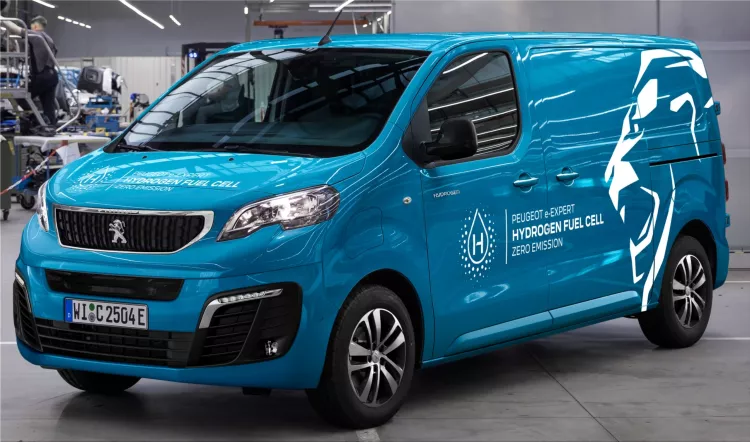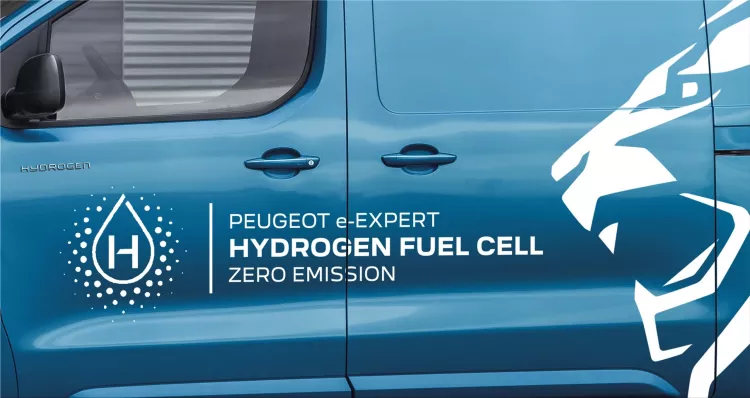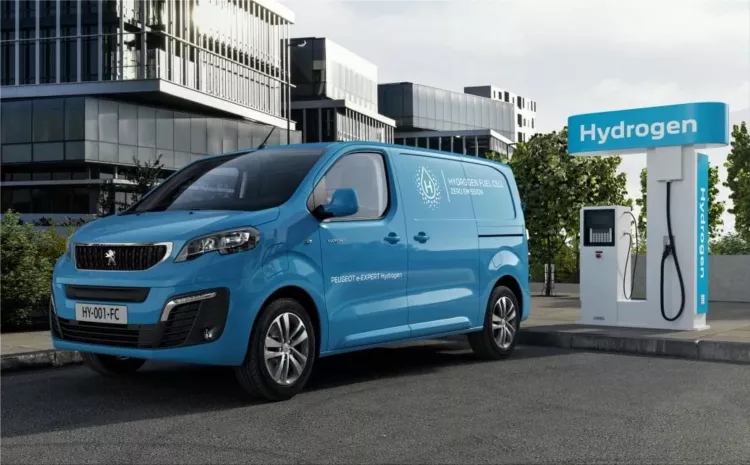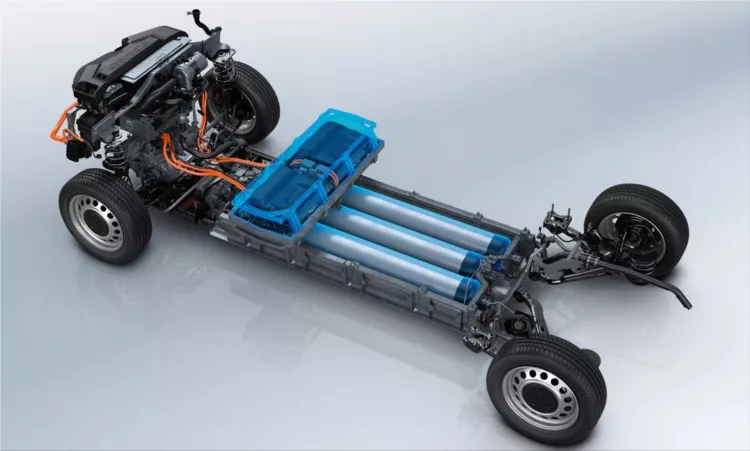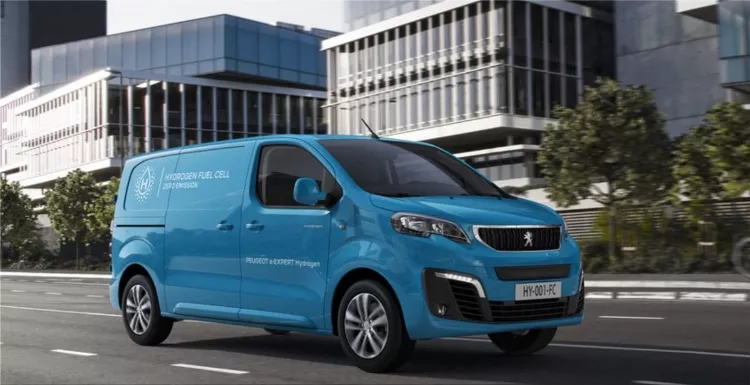The first Peugeot hydrogen car left the production line on December 13, 2021. This made Peugeot one of the first manufacturers to offer a hydrogen fuel cell variant in the light commercial vehicle market, in addition to combustion and powered vehicles.
Peugeot's Global CEO, Linda Jackson, explains: "Peugeot takes the lead in a future zero-emission technology that is especially important to the light commercial vehicle sector with the Peugeot e-Expert Hydrogen. Hydrogen electrotechnology permits extensive daily usage without recharging, which is a significant benefit for working people who must travel several hundred kilometers on the autobahn in a single day and then enter emission-restricted metropolitan areas. Such uses are made feasible by Stellantis' hydrogen technology, which is utilized in our Peugeot e-Expert Hydrogen."
The Peugeot van stands out for its seamless integration of the whole mid-power plug-in hydrogen fuel cell electric system. Consequently, there are no sacrifices in loading volume, and the low center of gravity provides stability, safety, and agility.
Peugeot has announced that the first customer of the e-Expert Hydrogen vans will be Watea by Michelin, a subsidiary of the group that produces car components; their cars will arrive before the end of this year.
The Peugeot e-Expert Hydrogen, which will enter serial production by the end of 2021, is the newest expression of the brand's "Extended Power of Choice" philosophy, allowing consumers to select from various drives to meet their specific demands.
The electric variant with hydrogen fuel cell propulsion is an example of the quick expansion of the Peugeot Expert electrified range. The Peugeot e-Expert Hydrogen entered the market barely 15 months after introducing the Peugeot e-Expert electric van in 2020, which was crowned "International Van of the Year" in early 2021. Since 1992, the Peugeot e-Expert has been the sixth Peugeot car to earn this prestigious award.
The Peugeot e-Expert Hydrogen van is based on the Peugeot e-Expert battery-powered model. It will first be manufactured in France at the Hordain location (northern France) and later in Germany at the Stellantis competence center for hydrogen technology in Rüsselsheim.
The new Peugeot e-Expert Hydrogen is an ingenious electric van with a plug-in medium-power hydrogen fuel cell that Stellantis specially developed: a fuel cell that uses the hydrogen to generate the electricity needed to drive the vehicle and a lithium-ion high-voltage battery (10.5 kWh) that can be charged via the power grid.
The new Peugeot e-Expert Hydrogen is characterized by:
- Its ability to cover all distances without CO2 emissions.
- The possibility of filling up with hydrogen in three minutes for a range of over 400 kilometers (WLTP).
- A charging socket for the 10.5 kWh battery.
- Two available lengths (standard and long) with the same charging volume properties as the diesel and battery-electric versions.
- Up to 6.1m³ loading volume.
- Up to 1,000 kilograms of payload.
- Max trailer load is 1,000 kilograms.
- The propulsion is provided by a 100 kW electric motor, which ensures a maximum torque of 260 Nm, similar to that used on the classic electric versions of the two models.
- Its adaptability to all road and motorway conditions, with a top speed of 130 km/h.
The Peugeot e-Expert Hydrogen van keeps the tried-and-true features of the combustion engine – good power, comfort, and driving enjoyment – while also providing extra mobility for city centers due to its noiseless and emission-free driving. Furthermore, fuel cell propulsion is an alternative to conventional battery-powered electric propulsion, mainly by removing the long charging time, which is critical in the case of a commercial vehicle, and by boosting autonomy, depending on the size of the hydrogen tank.
With the introduction of several global initiatives, hydrogen is quickly becoming a vital component of the energy transition. As a result, the ecosystem is expanding, particularly in Europe, where the European Clean Hydrogen Alliance spends an estimated 60 billion euros promoting this alternative.
The number of hydrogen refilling stations in Europe is constantly expanding due to government initiatives, and Peugeot is collaborating directly with energy providers to develop comprehensive packages. With the new Peugeot e-Expert Hydrogen, the french company positions itself as one of the leading players in this energy issue.
Stellantis has developed hydrogen battery versions for the Jumpy, Expert, and Vivaro commercial models for three of its brands, Peugeot, Citroen, and Opel, which will be derived from their electric variants. Peugeot is the first brand to enter series production with Peugeot e-Expert Hydrogen, in the same factory in France where the Citroen e-Jumpy Hydrogen will be produced. In contrast, the Opel e-Vivaro Hydrogen will be manufactured in Germany.
The demand to drastically reduce vehicle emissions is being pushed ever further. As a result, Peugeot is one of the first manufacturers to offer an electric van with a hydrogen fuel cell in series production in the compact… Continue reading
Hyundai has begun selling its new Nexo fuel cell SUV in its Korean homeland. According to Hyundai, 1,061 fuel cell electric vehicles were ordered during the one-week pre-order phase from 19 to 26 March. On the first day of the pre-order 733… Continue reading
Stellantis, the world’s fourth-largest automaker, has announced that it will start producing electric vans at its Luton plant in the UK from 2025. The move is part of the company’s strategy to expand its presence in the UK market and to meet the… Continue reading
Hyundai has announced the price of its second fuel cell production model. The Hyundai Nexo can be ordered in Germany for 69,000 euros. As with its predecessor ix35 Fuel Cell, both private and corporate customers can order the new Nexo from… Continue reading

